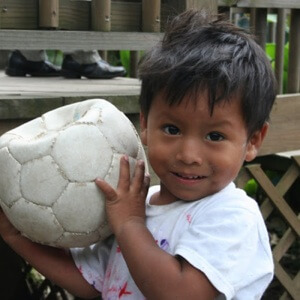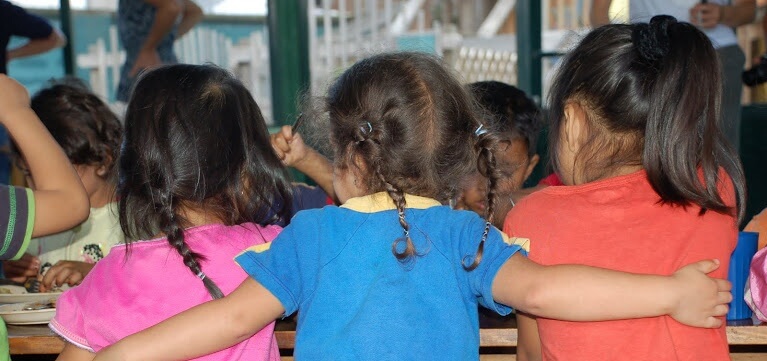 Education as a stable basis for a democratic civil society
Education as a stable basis for a democratic civil society
Education for the children in the slums of Guatemala City
The central garbage dump of Guatemala City (the capital of Guatemala) does not only serve the disposal of waste, it is also the basis of life for numerous families living in the surrounding slums. The so-called 'guajeros' collect recyclable items to sell them to the local recycle facilities. Instead of going to school, many children have to support their parents in this task from an early age. At the same time, poverty and lack of opportunities create a breeding ground for violence and drug abuse. Education creates opportunities and a path out of poverty for the children.
Necessity
Education and professional development opportunities for the children and teenagers in Guatemala
Activity
Camino Seguro finances the tuition fees and supervises the children outside school
Countable effort
Number of pupils who can attend school due to the absorption of the tuition fees
Result
Measurable increase of pupils finishing school with a degree
Systemic effect
Lowering the illiteracy rates, enabling higher education levels and improving the professional opportunities; positive impact on the democratization of the civil society
Background
Maya families that move to the city from rural areas in an attempt to find employment are particularly affected by the problems of the slums. Due to the lack of education, most of them only find jobs in the informal sector, such as garbage collectors. Most families are so poor that they cannot afford any education for their children and depend on the children’s labor in the informal sector.
The good deed
Education offers children and teenagers a way out of the vicious circle of poverty, criminality, and violence. More importantly, it creates opportunities and hope in an often hopeless environment. Through the absorption of the tuition fees and the provision of school materials and uniforms, the project allows over 550 children to attend a Guatemalan school. Additionally, the children receive a warm meal, support for their homework and healthcare. Extracurricular programs like music, sports, or computer classes stimulate the creativity and create a safe framework for socializing in a neighborhood that is marked by criminality and drug abuse. In the long-term, the educated children escape the poverty and live in dignity and security.
Challenge
The widespread youth gangs ('maras') impede the project with aggressive recruiting, drug consumption, and frequent teenager pregnancies. To face this challenge, the project has also implemented a violence prevention program and a mandatory healthcare program.

AboutGuatemala
Guatemala City
Capital
15.806.675
Number of inhabitants
3,513 USD
Gross domestic product per capita per year
133
Human Development Index
Guatemala is one of the poorest countries in the world
About the organization and further information
Association
Camino Seguro e.V. (Safe Passage)
Charity Navigator http://www.charitynavigator.org/index.cfm?bay=search.summary&orgid=10434




